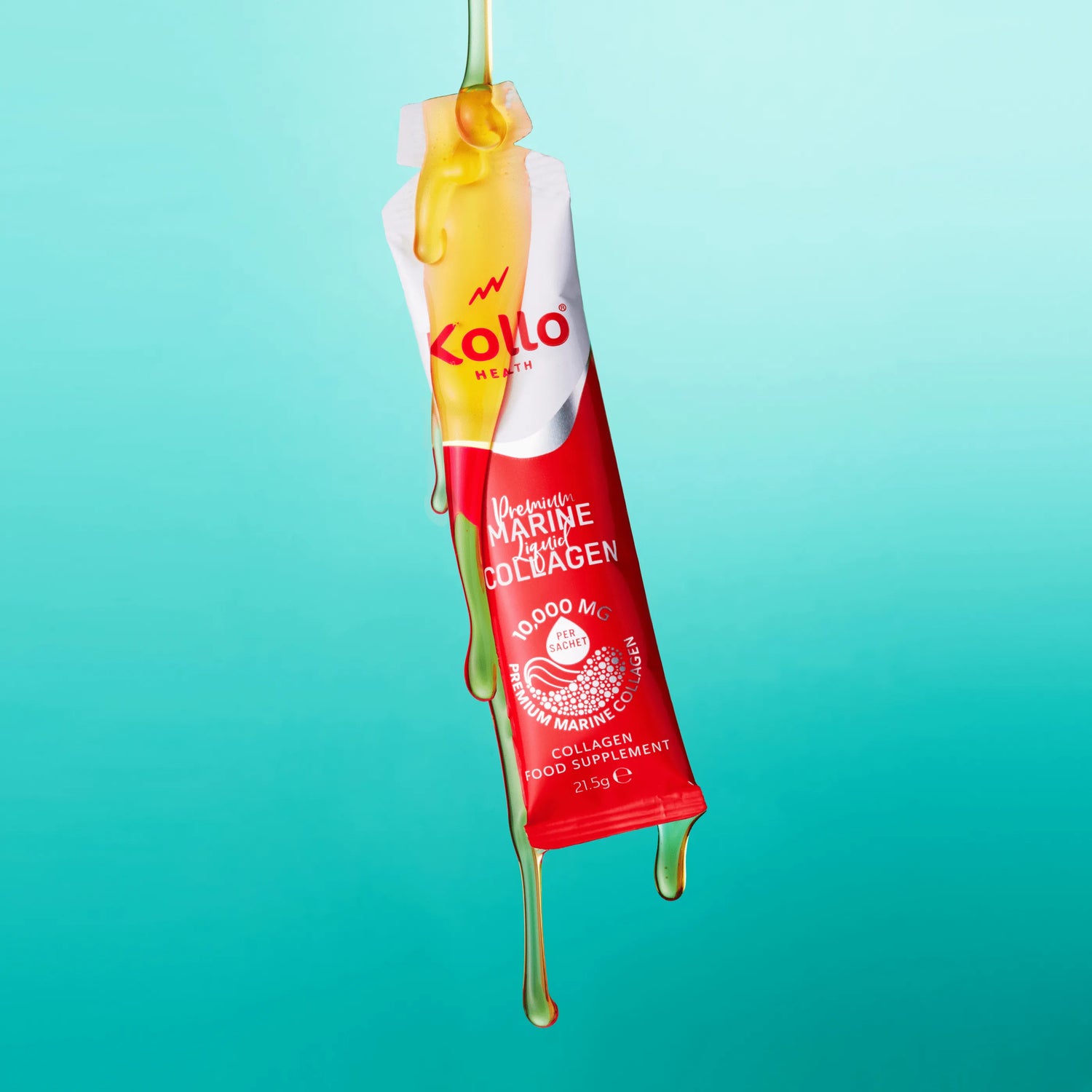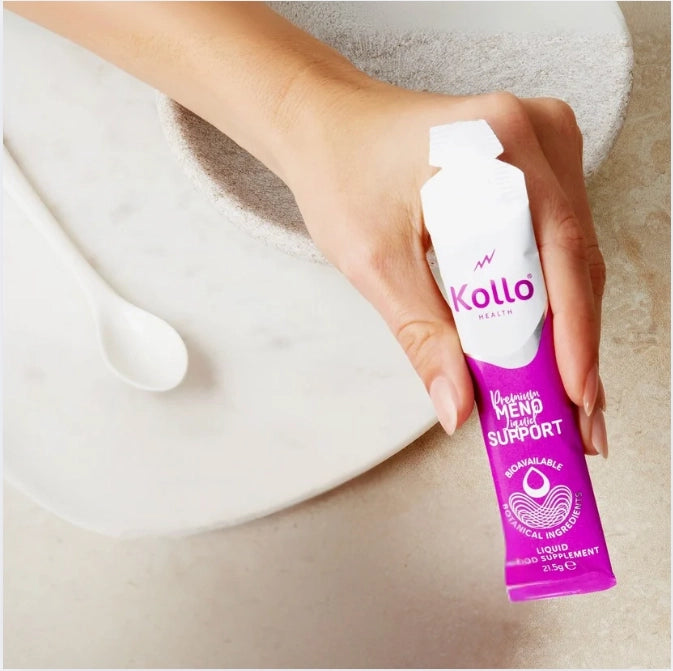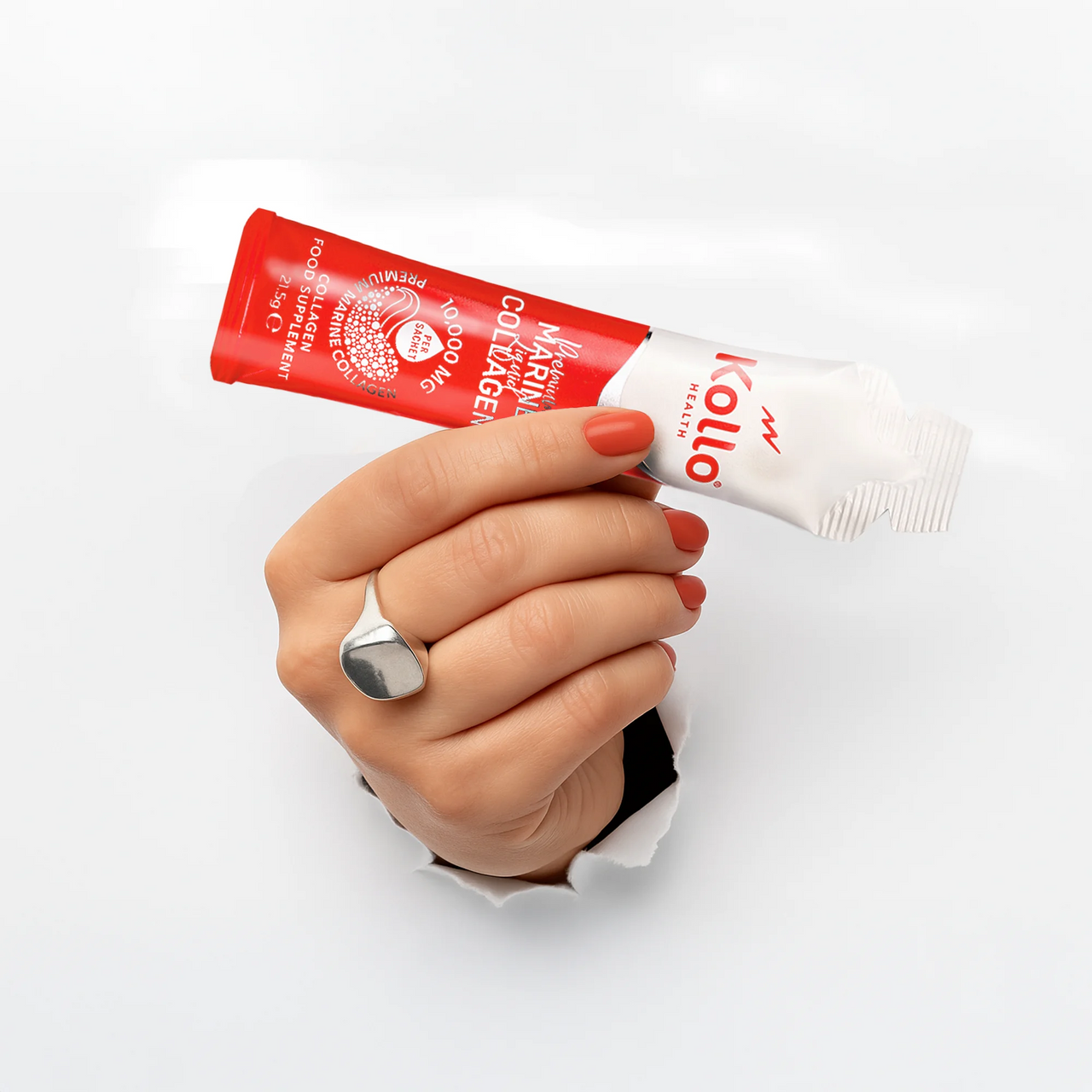Where does collagen come from?
Collagen is actually a naturally-occurring protein in our bodies. We make it ourselves, but we need fuel in the form of various amino acids and other nutrients to do that. What’s more, our ability to produce it declines with age, and the rate at which it's damaged in our body also accelerates. So we get to the point where overall levels drop and the early signs of ageing begin to set in. This is where supplements come in.
With regards to these supplements: where does collagen come from? We will explore that in this post.
Where does it come from in the body?
The collagen in our bodies is a very important structural protein. It provides strength and firmness to a number of connective tissues throughout the body, including in skin, joints and bones. We make it ourselves from amino acids that come from food. The most important amino acids for the synthesis of collagen are:
-
Glycine
-
Proline
-
Hydroxyproline
However, it takes more than just these to keep collagen production high. The processes that produce the collagen also need to be fuelled. Various B vitamins, vitamin C, zinc, copper, chlorophyll and proteins are also important for keeping things moving. You can get lots of these things by eating a healthy, balanced diet that includes as many of the following as possible:
-
Meats
-
Dairy products
-
Citrus fruits
-
Leafy greens
-
Seeds
-
Nuts
-
Pulses
The problem with relying on diet alone to fuel collagen production is that it doesn’t provide a consistent dosage of the nutrients you need. As the damage to your collagen increases and your natural collagen synthesis slows, you will notice things like wrinkles, thinning hair and nails, stiff/painful joints and even loss of bone density. For your body to replenish the lost collagen, you need to supply it with a high dose of the key nutrients for collagen synthesis every single day.
Collagen supplements
As the name suggests, these are designed to SUPPLEMENT your diet. In other words, you continue to eat the right foods with the nutrients your body needs, but you take your supplement to make sure you are also getting a consistent supply of everything you need for collagen synthesis.
A high-quality supplement like Kollo will make this happen. It will contain high-quality collagen peptides that are very easy for your body to absorb. This content will be supplied in a high dosage every single day, and will often be supported by other key nutrients like B vitamins and vitamin C. Whatever your main goal for restoring your collagen levels, supplements are an important part of making it happen.
In supplements, where does collagen come from?
The collagen content of supplements comes from animals. There are various animals that are used as sources. Each of which comes with slightly different pros and cons. You should know that, in all cases, the collagen is a by-product of the meat industry. It comes from parts of the animals that are not used in food, so no animal is slaughtered specifically for its collagen. In this way, the collagen industry is seen as very sustainable.
Note that the collagen in virtually all supplements is actually ‘collagen peptides’. This means the complete protein molecules extracted from the animal is broken down through a process called hydrolysis to make the amino acids contained within more accessible once the supplement is swallowed. In short, collagen peptides are easier for our bodies to absorb.
So, where does it come from?
Marine (fish)
A popular type for supplements comes from the skin and scales of fish. Marine collagen is what goes into every Kollo sachet, offering various advantages over other forms.
Pros
-
Marine collagen is very similar in structure to that of humans, so it is thought to be more easily absorbed into the human body than other collagen types.
-
It is exclusively type I, which is the most abundant in the human body.
-
Farmed fish are exposed to fewer chemicals like antibiotics, GMO foods and growth hormones, so the it has a very high purity.
-
Marine collagen is usually completely tasteless.
Cons
-
It tends to be more expensive than other forms.
Bovine (cows)
Bovine collagen is extracted from the bones, hides and tendons of cows. It is another popular type to use in supplements and you are sure to come across bovine collagen if you are exploring different possibilities for your collagen supplement.
Pros
-
Bovine collagen is often a cheaper option.
-
There may be types II and III, as well as type I, in a bovine supplement.
Cons
-
Farming techniques for large mammals like cows often involve exposure to a lot of different chemicals. Research has found both the meat and collagen from cattle to be contaminated with various toxins relating to farming techniques and the processes of extracting the collagen.
-
The type I content is usually lower in bovine collagen than marine.
-
The ‘beefy’ taste of bovine collagen is quite widely reported in various forms of supplements.
Other farmed animals
The other animals that collagen is taken from include pigs and chickens. The pros and cons of these sources are very similar to those of bovine, so we won’t dwell on it too much. The key takeaways in comparing the sources are that, generally speaking, a good marine collagen product is likely to be more high-quality - greater purity, more bioavailable, no unpleasant taste to content with, etc.
When you choose a bovine, porcine or other collagen supplements, you may save some money on the cost of the product. But you are likely to have a less bioavailable supplement with collagen that could be contaminated by toxic chemicals. These will not have any noticeable effect on you in the short-term, but collagen supplementation is a long-term commitment and extended exposure to those toxins could be bad for you organs.
What else can I do for a pro-collagen lifestyle?
Getting the best results is a holistic practice. Take a high-quality supplement like Kollo and make the changes to your diet that will ensure you get the full range of nutrients your body needs. Another things that can be excellent for promoting and strengthening your collagen is exercise. Weight-bearing exercise, in particular, helps build strength in your bones, tendons, ligaments and cartilage, and by building collagen at the same time you will find the structure of those tissues becomes stronger than ever.
The other side of the coin is minimising the rate at which you lose collagen. Consider making the following changes:
-
Reduce your sun exposure and wear sunscreen whenever you go out.
-
Quit smoking.
-
Lower your stress levels.
-
Cut down on refined carbohydrates and sugar.
Age isn’t the only thing that causes collagen levels to decline. A few targeted changes in your behaviours can make a big difference.
Why should I choose Kollo?
We use Naticol marine collagen, which is known to have high purity and has been clinically proven to bring about improvements in peoples skin, hair, nails and joints. We chose this collagen content as part of the development process where we followed the science closely to create the most potent and effective product we possibly could.
Highlights of Kollo include:
-
A 10g dose in each daily sachet – that’s enough to yield the full range of benefits according to existing research.
-
A liquid suspension for maximum bioavailability of the active ingredients.
-
Fortified with B vitamins, vitamin C and l-lysine for maximum potency.
-
Easy to take – simply drink it straight from the sachet, or empty it into a glass of water, stir up and drink.
-
A great tropical taste from natural, sugar-free flavouring.
We have a wide range of ambassadors from all walks of life, but there is one thing that unites them all – a zest for life! The same is true of our customers who have taken the time to leave their thoughts – we have over 2,000 5-star reviews from verified buyers. We have also won numerous awards and been featured on ITV This Morning and Women’s Running magazine. Kollo is Informed Sport certified, meaning it passes rigorous checks to ensure its safety for athletes, and we also have ‘Amazon’s Choice’ status with the biggest online retailer in the world.
Learn more
Basically, Kollo passes all the tests in the lab and in the real world. We invite you to learn more about us by exploring our website and reading our customer reviews. There is lots of information in our blog section if you want to learn all about collagen and its benefits.
If you still have questions, please don’t hesitate to get in touch. Our team can be reached through the ‘Contact’ section on our website and we’d love to hear from you.







